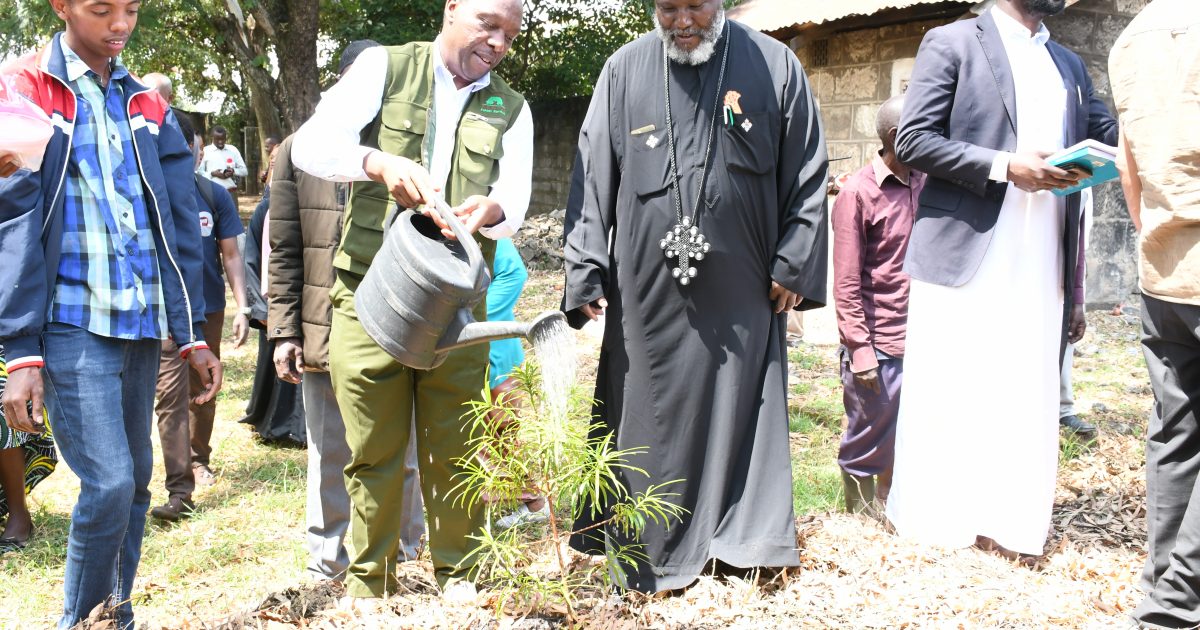Principal Secretary for Environment and Forests Mr. Gitonga Mugambi has cautioned against logging in public forests even as he joined hands with the clergy to grow the country’s tree cover.
The PS, who announced the deployment of about 2, 700 forest rangers soon, expressed regret that the loggers had taken advantage of the shortage of rangers to carryout illegal activities in the forests, and called on the members of the public to be on high alert and report any illegal activities in the forests.
“We have a duty to manage our forests efficiently and effectively and this we will do, to back up the fencing that has been done in most of the forests across the country. To loggers, it is not going to be business as usual. We are coming for you and we will catch up with you,” cautioned Mugambi, citing the recent arrest of loggers in Mau Forest.
While rallying the clergy and congregants across the country to join in and plant trees in places of worship and homes, the PS noted that the protection of biodiversity was “the only way we can ensure we have a present and a future for everyone.”
The Interreligious Council of Kenya (IRCK) Chair Rev. Fr. Joseph Mutie, called on congregants to plant trees in spaces near their places of worship, calling on the clergy to use their calling to rally members for the environment.
The leaders spoke in Nakuru when IRCK signed an MoU with the State Department of Forestry aimed at boosting the national target to plant 15 billion trees, as a way of reversing the deteriorating mother nature.
“The clergy have a role to play in influencing their congregations to back up this effort, alongside their prophetic calling to lead them in faith. It is on this backdrop that we call upon all members to rally their members to save the God-given gift of nature,” said the Secretary General of IRCK Abdi Raman Ismael.
They advocated for growing of trees and monitoring for safe growth of the trees to ensure that the young generation enjoyed a safe and fresh environment.
The momentous signing ceremony took place at Nakuru’s revered 58 Temple, where the Principal Secretary of the State Department of Forestry, joined forces with influential religious leaders representing the Muslim, Christian, and Hindu communities.
Together, they urged their congregants to recognize the paramount importance of tree planting and cultivation.
This groundbreaking collaboration between the State Department of Forestry and the interfaith community is expected to make substantial progress towards achieving the ambitious target of planting a minimum of 15 billion trees across the country within the next decade.
By harnessing the collective power of religious institutions and government agencies, Kenya is taking a momentous step towards ensuring a greener and more sustainable future for all its citizens.
By Anne Sabuni and Samwel Karanja





